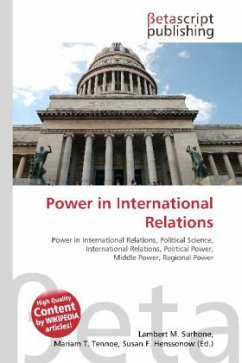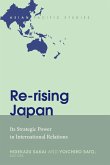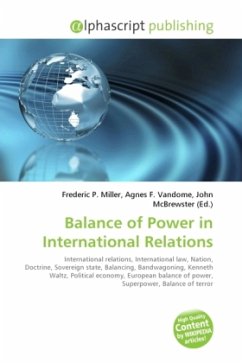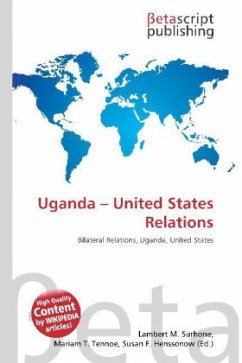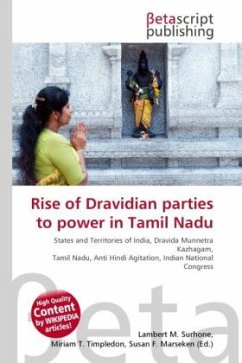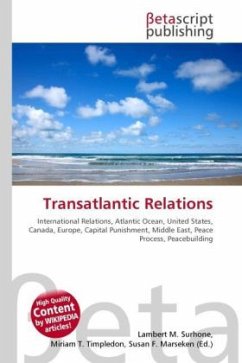Please note that the content of this book primarily consists of articles available from Wikipedia or other free sources online. Power in international relations is defined in several different waysModern discourse generally speaks in terms of state power, indicating both economic and military power. Those states that have significant amounts of power within the international system are referred to as middle powers, regional powers, great powers, superpowers, or hyperpowers, although there is no commonly accepted standard for what defines a powerful state.Entities other than states can also acquire and wield power in international relations. Such entities can include multilateral international organizations, military alliance organizations (e.g. NATO), multinational corporations, non-governmental organizations, or other institutions such as the Roman Catholic Church, Wal-Mart, or the Hanseatic League.
Bitte wählen Sie Ihr Anliegen aus.
Rechnungen
Retourenschein anfordern
Bestellstatus
Storno

